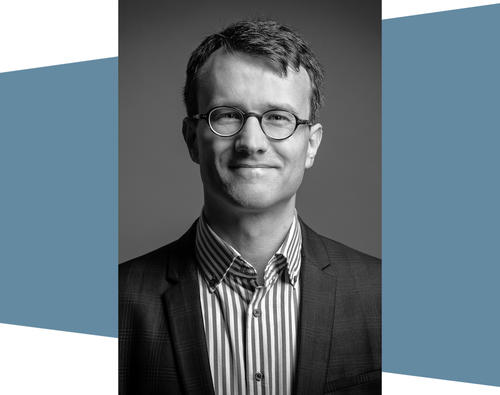Christian Rüdiger
Christian Rüdiger is a film scholar and expert of German film history. He studied film studies and art history at the Freie Universität Berlin, where he later taught film studies, also. He received doctorate at the Freie Universität Berlin with his work Schule im deutschen Spielfilm. Filmische Dimensionen von Bildung, Erziehung und sozialer Selektion, which focuses on the cinematic dimensioning of education, academic and otherwise, and social selection. It is set to be published in 2023.
Rüdigers research interests include film as political experience spaces, the phenomenological theory of film, as well as German film as a whole. Rüdiger dedicates works such as Die Affektrhetorik utopistischer Gemeinschaftsbildung in Wolfgang Schleifs DIE STÖRENFRIEDE (1953) (S. 71-92) in Steffi Ebert and Bettina Kümmerling-Meibauer’s Von Pionieren und Piraten. Der DEFA-Kinderfilm in seinen kulturhistorischen, filmästhetischen und ideologischen Dimensionen (Heidelberg 2021), to his academic interests.
He also collaborated with Hermann Kappelhoff, Christine Lötscher and Daniel Illger in their collection of essays by the title of Cinepoetische Exkursionen ins Kino von 1968, contributing the piece Gaudeamus igitur. Poetische Weltentfaltung und ästhetische Weltwahrnehmung als zeithistorische Dimensionen in Werner Jacobs’ ZUR HÖLLE MIT DEN PAUKERN (S. 95-112).
Three Quick Questions:
In a few words, can you tell us about your current research interest?
At the moment, I am working on newer British period films or those visual worlds that can be associated with the so-called British heritage film. Recent films in which BIPoc take on prominent roles seem to stand at odds with traditional historiographies and experiences of white normativities.
How do you relate the term poiesis to your work?
I see the concept of poiesis in my project primarily in the forms of resistant appropriation and repurposing of known audiovisual images and spaces of experience. A productive filmic way of thinking is produced here, which explores the experience of a new, pluralistic community and thereby performatively breaks with the conventions of heritage film and the paradigms of its own hegemonic, white (film) historicity.
Which film or other audiovisual format has resonated with you lately and why?
Although the series has been around for a few years, I only recently stumbled across the first season of The Terror, which seeks a fairly free approach to the events surrounding John Franklin's lost Arctic expedition in the 1840s. I found it very impressive how the basic conditions of communality and abandonment are negotiated quite viscerally in an escalating modulation of space and time.
